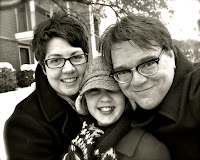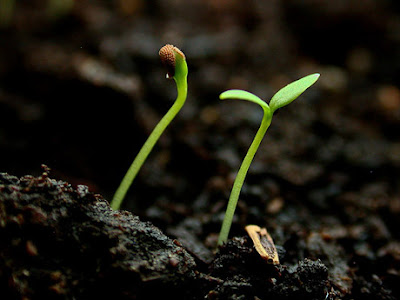Because big, weaselly companies don't like to play fair with poor people, I did not in fact get one.
First, a little backstory. A couple of months ago, on the day I was leaving for a conference in Utah, my silly little purple Blackberry died dramatically, complete with heat and a delightful burning smell. I immediately took it to my local Sprint store and was met at the counter by a young man whom we will call Sprint Weasel Prime, since it is with him and his actions that our story really begins and ends.
This Blackberry was never a good one. I purchased it in a pinch after the failure of my previous phone, and its only real selling points were that it was cheap, and it was purple. And over the course of a year of use, it really only excelled at being purple. Still, its death was dramatic, taking out both the battery inside and a second battery installed by Weasel Prime. It was frankly the only impressive thing it had ever really done. Well-played, crappy purple Blackberry. Well-played.
Weasel Prime went in the back and checked inventory or played Angry Birds or whatever they do back there, and after a few minutes, he came back and informed me that the purple Blackberry could be neither repaired nor replaced. The only solution was a new phone, but WOO!, there was a different Blackberry that I could get for free, using my upgrade, which had been sitting unused for a couple of years. Given that my choices were apparently to do this or carry a broken, occasionally smoke-emitting purple phone, I went with this option, the only one I was presented with. Our transaction complete, I bade farewell to Sprint Weasel Prime and went phonefully on my way.
Fast-forward to last Friday, when I went online to pre-order the brand new iPhone, available for the first time from Sprint. According to the Apple site, it would cost me about two hundred bucks.
Except no. Apple redirected me to the Sprint site, where I was informed that the new iPhone would actually cost me a cool six hundred and fifty real, non-boardgame American dollars.
You know why, and I should have as well. It was because Weasel Prime used my upgrade to replace my crappy purple Blackberry with a slightly less crappy one. (To be fair, as an excited Weasel Prime had pointed out, it IS a flip phone, which I suppose is good if you frequently butt-dial or like to pretend you're Captain Kirk.) As a result, my only options for getting an iPhone were to sell a kidney on eBay or wait until June.
The customer service representative I spoke to on the phone was incredibly nice and understanding; let's call her Huggy Weasel. She admitted that Weasel Prime was completely wrong to say that using my upgrade was my only option. Under my service agreement (for which I'm sure I pay a little something something every month), I was entitled to a replacement phone, either refurbished or a close equivalent model, albeit probably not purple, alas. She went further, too, admitting that the company was 100% aware that many of their sales associates in their stores were doing the exact same thing, mostly to get existing customers out the door and free up some face time for new, revenue-generating customers. Sadly, she concluded, there was nothing she could do for me. I would have to go back to the store and get them to make it better somehow.
"If I were you, I'd go punch someone in the face," she suggested.
I went to the store, although I was admittedly hoping that some non-punching options might present themselves. Once I started talking to the guy we'll call Mule Weasel, I began to understand why Huggy Weasel recommended fisticuffs.
Mule Weasel did not budge. He did not even admit that using the upgrade the way it had been used was wrong. He presented an immovable wall formed in equal measure of bricks made of "I dont know" and "We can't do anything for you here". If there was one emotion visible on his face, it might be deep regret that my name wasn't Robert Go-Fuck-Yourself, because that was clearly what he wanted to say to me.
My favorite moment? When the original Weasel Prime lumbered over, listened to our conversation and said, with a little touch of hurt in his voice, "When I used that upgrade, you actually thanked me!"
"Well, if I'd known you were screwing me, do you think I would have thanked you?" I left shortly after that.
My final conversation with Sprint took place as soon as I got home. I called and spoke to a number of representatives. They probably don't warrant names here because the only thing they really did was escalate me up the chain. They didn't do so quickly; by the time I made it to the third rep, I felt like I was crawling up the side of Mount Doom, on a quest to throw my fancy flippy Captain Kirk Blackberry into the fires from whence it was forged.
The last time I was put on hold, it was for, and I kid you not, FORTY MINUTES. I think any time you're on hold for longer than five or ten minutes, you start wondering if the customer service representative is just hoping you'll lose hope and go away. So yeah. Forty minutes.
Finally, I found myself speaking to the Final Arbiter of Customer Service Issues Weasel. The Final Arbiter Weasel repeated my story back to me (with a few passive-aggressive "You claim"s thrown in) and then presented my options. They were as follows, in no particular order: I could 1) cheerfully pay $650 dollars for an iPhone, 2) cheerfully wait until June and use my miraculously regenerated upgrade to get an iPhone, or 3) break my contract and cheerfully pay the steep financial penalties for doing so. He also made it clear that I had three further options, which could be best expressed by replacing the word "cheerfully" with "grudgingly" in the first three options.
One thing I've learned over the years is that when you're on the phone with a customer service representative, you have one little piece of power, just one: they are almost never allowed to terminate a conversation until you agree to do so. They can put you on hold for forty minutes, they can present an implacable wall of NO, they can be condescending, and I suppose they could just sit there making little fart noises while you talk. But unless you swear at them, you can almost always say whatever you want for as long as you want and waste as much of their time as you feel like wasting. That's a free tip, kids. You just learned something!
To finally get me off the phone, the Final Arbiter Weasel offered to email the district manager for Weasel Prime's store and let him address it however he saw fit. And here's where my favorite conversation in this whole story took place.
Me: Can you copy me on that email so I can follow along?
Final Arbiter Weasel: No, I can't do that.
Me: Huh? You can't copy me on that email? Really? Why not?
Final Arbiter Weasel: Because... the email's going to contain proprietary Sprint information.
Me: What? Your email about my case is going to contain secret information? What could that possibly be?
Final Arbiter Weasel: Um, it's the how the email is formatted that's proprietary.
So there you go. Aside from this call that I'm never ever ever going to receive from the District Manager Weasel, I think that's about where things stand now and forever. I can either go away quietly, or not go away not quietly, but it's pretty clear that despite the admission of Sprint's own representative that the original action taken by Weasel Prime was inappropriate and unfair, the official stance of Sprint is "Tough titties, customer."
Now let me be very clear. I understand completely that this is a very First World problem. I know that families face big problems every day that are much more important than this. But you know what? We're one of those families. Just because ninety-five percent of my blog posts are about Schuyler and our neverending quest to help her live a meaningful life in the face of real tooth-and-claws unfairness doesn't mean that when people behave like tools, I'm going to say "Well, this certainly doesn't compare with worrying about seizures or Schuyler's education or her future or whether or not she's going to be eaten alive by this grand rough world, so no problem."
Actually, I think for special needs parents, the opposite may be true. We spend every day of our lives waging battles that we mostly expect to lose or at the very best fight to a draw. And by every day of our lives, I mean right up until the day we die, when our last thought on this earth may very well be "What will happen to her now?"
So speaking just for myself now, when I'm confronted by forces driven not by invisible, implacable monsters but instead by flesh and blood humans whose only power over me is in what fucking PHONE I can use, do you think I'm afraid? Do you think I'm likely to give up quickly, or at all, when I'm treated unfairly by a sales associate in an ugly golf shirt with a corporate logo printed on his moob?
Do you think I'm inclined to stop fighting that little fight even when it's pretty clear that I'm not going to win? When the only thing I can do to address my grievance is to do my best to convince as many others as possible not to do business with a company engaging in unfair practices? Do I quit because it's a small fight, in the shadow of my family's larger ones?
No, I'm really not so inclined. And if that makes me a dick in your weasel eyes, that's probably true. But I'm the dick that the world has made me. Well, mostly.
See you in June, Sprint.
-----
(Note: I would like to extend my deepest apologies to any weasels, ferrets, martens, ermines, minks, otters or stoats who may have been understandably insulted by my metaphorical representation of these particular employees and agents of the Sprint Nextel Corporation.)
 |
| "Dude. Uncool." |





















